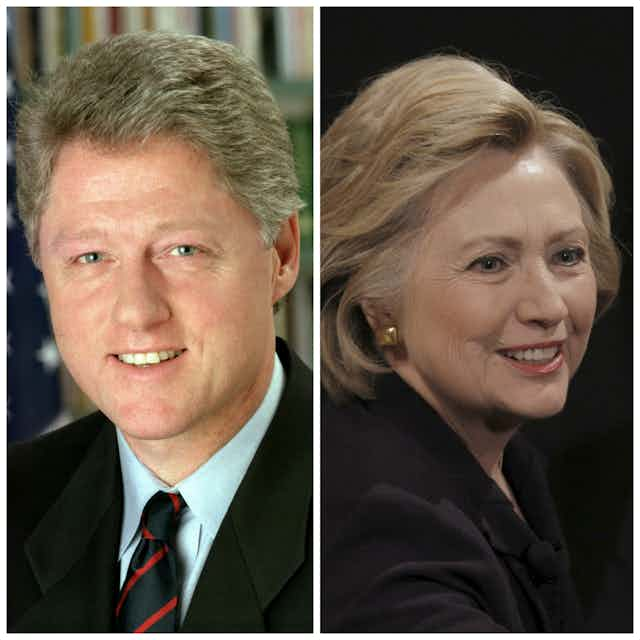The April 19 primary in New York looks like it will play a familiar role in this latest Clinton presidential campaign.
Bernie Sanders is hoping his Brooklyn roots and left-wing stands will propel him to victory there, finally altering the dynamic of the race in his favor.
More likely, however, is that the New York primary will do for Hillary Clinton in 2016 what it did for Bill Clinton in 1992, which is to close the door to a left-wing populist challenger.
Instead of Sanders, Brown
The similarities between the 1992 contest and this year’s in New York are striking.
In 1992, Bill Clinton’s campaign lost momentum after early strong showings in the South, which encouraged then-former California Governor Jerry Brown, Clinton’s one major remaining rival that year, to seek a decisive win in New York.
Brown in 1992 was the anti-establishment champion of the Democratic Party’s left wing.
He attacked the existing system of funding presidential campaigns as corrupt, refused contributions over US$100, and created what was then the brand-new idea of a toll-free donor hotline.
Brown criticized Bill Clinton as a “bought and paid for” participant in a corrupt system. He even pilloried the Arkansas governor’s wife, Hillary, claiming in a public debate that
He is funneling money to his wife’s law firm for state business…It’s the kind of conflict of interest that’s incompatible with the kind of public servant we expect.
Brown’s ideas and phrases were strikingly similar to the ones Bernie Sanders has deployed this time against Hillary. “It’s not about me,” Brown said, “it’s about a process that hasn’t been working.”
After Brown won an upset victory in the Connecticut presidential primary two weeks before New York’s, the chance of another upset in New York became real.
The Cuomo endorsement
For the next 14 days, the Democratic presidential nominating process looked as though it might go off the rails, leaving the party with no candidate sufficiently strong as to seem a legitimate nominee.
The Clinton campaign responded with two weeks of intense campaigning by the candidate, a barrage of television ads and an 11th-hour de facto endorsement by the governor of New York, Mario Cuomo.

This last, it appears, was significant. Cuomo was popular with Democrats. He had been the party’s favorite choice for presidential candidate until he took himself out of the running at the very last minute. He had been previously openly critical of Bill Clinton’s record as governor of Arkansas.
“As a package,” Cuomo said four days before the primary, “Bill Clinton would make in my opinion a superb president.”
On April 7, Clinton won what The New York Times described as a “bitterly contested primary” with 41 percent of the vote.
With that triumph, Bill Clinton’s campaign closed the door to the Brown challenge, essentially ending the 1992 Democratic presidential nomination battle.
Fast forward to 2016
The parallels to 2016 are plain to see.
Hillary Clinton’s campaign has lost some momentum since her sweep of the major contests on March 15. As Bernie Sanders has racked up several primary and caucus victories in a row, the importance of the New York primary has grown.
Once again, New York Democrats have the chance to play king- or queenmakers. And Hillary, like Bill, is responding with energetic campaigning, lots of television ads and the support of surrogates, most notably New York City Mayor Bill de Blasio, New York Senator Chuck Schumer and Mario’s son, New York Governor Andrew Cuomo.
Hillary and Bill Clinton have close connections to all of three of these leading New York Democrats.
Bill de Blasio managed Hillary Clinton’s campaign for the Senate in 2000, and she served with Chuck Schumer after winning her Senate seat that year. Andrew Cuomo worked for his father as a kind of personal emissary, and was part of the process of negotiating with the Clinton campaign back in 1992.

If Hillary Clinton succeeds on April 19 in replicating Bill’s victory in New York, the likely consequence is that – to party insiders, at least – the nomination battle will be over.
Sanders, like Jerry Brown in 1992, would likely stay in the race to continue his crusade, but without any further big chances to turn things around.
The parallels between 1992 and 2016 in New York remind us that the Clintons are a team, and an extraordinarily experienced one in terms of electoral politics.
Although that has been a mixed blessing this year given the unhappiness among voters with the status quo, the Clintons’ experience has also been a source of real strength.
The New York primary may well reveal whether, in the end, that asset has mattered most in the Democratic presidential nomination contest.

